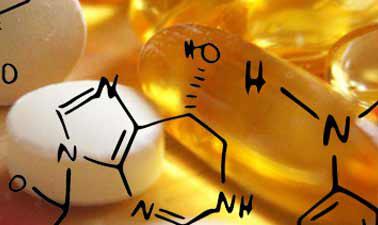Pharmaceutical
Analysis and Quality Control-I is a branch of analytical chemistry, and basic study of the
series of processes involved in the identification, quantification,
determination, and purification of a given chemical substance. It also ensure separation
of the components of a solution or mixture, and in determination of structures
of chemical compounds. The course will provide a
comprehensive introduction to analytical chemistry relevant for chemical
quality control of pharmaceutical raw materials and final drug products, and
for determination of drugs, metabolites and substances of abuse in biological
samples. Students who will be enrolled to the course will be able to
gain theoretical and practical skills needed to operate laboratory instruments
during drug analysis.
10 Lessons
Updated: Nov 2020

